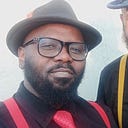Time In Spare Moments
“Mark my words, that those who would be the great millionaires of the day in 30 years time, those who would be great speakers, poets, businessmen and philanthropists are on the same level as you are right now, of the same circumstances and not an inch above you.” ― Thomas De Witt Talmage
Isaac Newton during lockdown
The Bubonic plague of 1665 was responsible for killing off 200 million people, it a fast-spreading bacterial infection that caused fever, delirium, and ultimately the death of it’s victims.
The City of London during that year went into compulsory lockdown, including Cambridge University which had theyoung Isaac Newton as a student at the time.
The year forced many to return home including Newton who would — the following year — create the works associated with the period famously referred to as Newton’s Year of Wonders. In this year, he would formulate his greatest contributions to science.
While most youth would squander their time during this period, he set himself diligently to work, rising up early in the morning and working late till night. He had a habit of productive procrastination; putting off one object of inquiry in place of another, leading him to lay out the accurate Laws of Gravity, Optics, Calculus and Motion. Commenting on those early days he says;
“I was in the prime of my life for invention, I minded Mathematics and Philosophy more than at any other time since.”
William Shakespeare during lockdown
The great plague also saw William Shakespeare produce some of history’s greatest works of literary art. No-one knows for certain who he was but notable guesses include Edward de Vere, Francis Bacon or Derby. It is highly contested but also highly agreed upon that the writer could not have been the Glover’s son of Stratford but was probably paid off by a wealthier gentleman who was of noble descent.
Whoever the true author was, his work was so engaging that a naval writer once said of him, “He must have been a sailor.” While another, “Surely he was a merchant”, and yet another, “He was most certainly a Nobleman,” and still another, a Priest, a Lawyer, Statesman and so on.
He wrote his plays and sonnets during the lockdowns of 1593 and 1606, composing the works of Romeo and Juliet, and thereafter, King Lear, Macbeth, and Antony and Cleopatra.
“Guard well your spare moments. They are like uncut diamonds. Discard them and their value will never be known. Improve them and they will become the brightest gems in a useful life.” ― Ralph Waldo Emerson
Comte de Buffon
Samuel Smiles shares the biography of one Comte de Buffon who inspired and influenced all subsequent generations of naturalists and encyclopedists. Although as a young man he was obstinately lazy and indolent, born and raised in a wealthy family and thus having all his needs and wants catered for.
One day he came to the epiphany that he was wasting his life away idling in bed all day, so he resolved to make something of himself and break the habit. He struggled with it for some time, but failed continuously to wake up at the appropriate time.
He then called his servant boy Joseph to help him and promised a crown and a silver ring every time he succeeded in getting him up before 6. Joseph accepted the offer and attempted to wake him up everyday but would be met with complaints of illness and threat of immediate discharge for disturbing his sleep.
Joseph, finding himself earning nothing by letting his master sleep in, determined to earn his crown. One morning, Buffon was particularly obstinate, so Joseph resolved to pour a full bowl of ice water on his sheets, effectively waking him up immediately.
He would go on to eventually conquer his habit and the older Buffon would often pleasantly recall that he owed to Joseph three to four volumes of his Histoire Naturelle, the greatest Enclyopedia work up to that time.
Read more in my new book! The Trials And Triumphs of Hyperachievers
